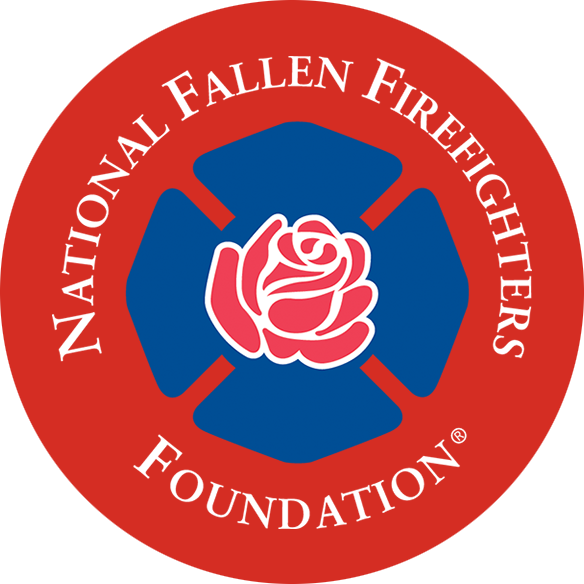In 1997, the National Fallen Firefighters Foundation sponsored a meeting of the leaders of the major fire service organizations to ask for their assistance with formulating new line-of-duty death criteria to determine eligibility for inclusion on the National Fallen Firefighters Memorial.
Present at this meeting were representatives from: National Volunteer Fire Council (NVFC), United States Fire Administration (USFA), International Association of Fire Chiefs (IAFC), International Association of Fire Fighters (IAFF), National Association of State Fire Marshals (NASFM), National Fire Protection Association (NFPA), and the Federal Emergency Management Agency (FEMA).
Meeting participants unanimously agreed that inclusion on the National Fallen Firefighters Memorial as a line-of-duty death shall be determined by the following standards:
- For the purpose of this Memorial the term “firefighter” means an individual whose official duties include fire suppression, fire investigation, or fire police activities, and who is actively employed on a full-time, part-time, volunteer, or contract basis by a local county, state or federal agency, including as a chaplain or candidate officer, with or without compensation, to provide primary fire protection for an organized jurisdiction having authority.
This definition also includes seasonal and full-time employees of USDA Forest Service, Bureau of Land Management, the Bureau of Fish and Wildlife, the National Park Service, and the US Department of Energy and state wildland agencies; contract fire suppression personnel and pilots working under the official auspices of one of the above; prison inmates serving on fire crews; civilian firefighters working at military installations; and privately employed firefighters including trained members of industrial or institutional fire brigades.
In 2010, the Foundation expanded the definition of firefighter to include active duty, enlisted, and officer United States Air Force, Army, Coast Guard, Navy, and Marine Corps military personnel assigned to fire stations who die performing emergency services in accordance with their position description. The two exclusions from this policy are: (1) personnel who die fighting fire on board Navy ships where all sailors are considered firefighters, and (2) personnel who die from direct enemy action or attack.
- “Line of duty” means any activity or action which a firefighter is obligated or authorized by statute, rule, regulation, condition of employment or service, official mutual-aid agreement, or other law, or for which he or she is compensated to perform under the auspices of the fire service protection agency he or she serves, and that such agency legally recognizes that the activity or action to have been obligated or authorized at the time performed.
Additionally, they agreed that the following criteria will be applied when evaluating the circumstances of each death for inclusion on the National Memorial:
- Deaths meeting the Department of Justice’s Public Safety Officers' Benefits (PSOB) program guidelines for a favorable determination. (See PSOB site for current information.)
- Deaths directly resulting from cancer, that are defined as meeting the criteria of the decedent’s home state occupational exposure presumption laws. (Note: Applies to only to such deaths occurring on or after January 1, 2018.)
Documentation
In all cases, documentation must be provided showing a direct link from a single emergency incident, or training activity, to the firefighter’s injury and subsequent death. Examples of documentation that can be submitted are:
- department incident or run reports,
- newspaper articles,
- notarized witness statements,
- hospital records,
- physician reports,
- and disability records.
Such cases are:
- Deaths where the decedent is under the age of 18.
- Deaths that occur while the firefighter was engaged in a non-emergency fire department duty, i.e. – station or apparatus maintenance, special-event standby assignments, parades, community service details, fundraising events, etc.
- Deaths that occur during the firefighter’s commute to/from their assignment.
- Deaths due to suicide.
- Deaths due to COVID-19.
- Deaths due to infectious diseases (including viral, bacterial, parasitic or fungal).
- Deaths due to presumptive causes other than cancer.
- Deaths where there is a report of alcohol or controlled substance involvement.
Specific cases will be excluded from consideration for inclusion on the National Memorial, such as:
- Deaths attributed to alcohol or controlled substance abuse.
- Deaths resulting from the firefighter acting in a grossly negligent manner at the time of his/her death.
Review and Approval Process
Names added to the National Memorial wall each Spring represent those line-of-duty deaths approved as eligible for inclusion from the previous calendar year (January 1st-December 31st). All required documentation for cases in the previous year must be received by December 31st to be considered for inclusion that year. After all documentation is gathered, Foundation staff prepares an initial case determination for review by the Chief Executive Officer. The Chief Executive Officer then reviews each case and makes the final determination of eligibility for inclusion. Appeals of the Chief Executive Officer’s decision are reviewed by the Foundation’s Board of Directors. Any previous year cases approved after December 31st will be honored the following year, i.e. – a 2023 fatality approved in March 2024 will be honored in 2025.
The criteria used for including a firefighter’s name on the National Fallen Firefighters Memorial are separate and distinct from the line-of-duty death criteria used by other agencies, entities, or programs to establish line-of-duty death status for other national, state, and local memorials or benefit payments. In 2014, the National Fallen Firefighters Foundation reconvened the organizations that set the 1997 LODD Criteria and asked them to examine the relevance of the existing criteria. These organizations reaffirmed the criteria as written and acknowledged that the Foundation may need to expand the criteria at a future date. In addition, the Board of Directors and the Foundation’s Chief Executive Officer may deviate from this set criteria based upon a case-by-case review of the information that is provided covering known facts of the line-of-duty death case.
Acceptance for inclusion on the National Fallen Firefighters Memorial in no way impacts decisions made by the federal government regarding the awarding of PSOB benefits. For more information about PSOB, its guidelines, and instructions for filing a claim, visit www.psob.gov or call 1-888-744-6513.
